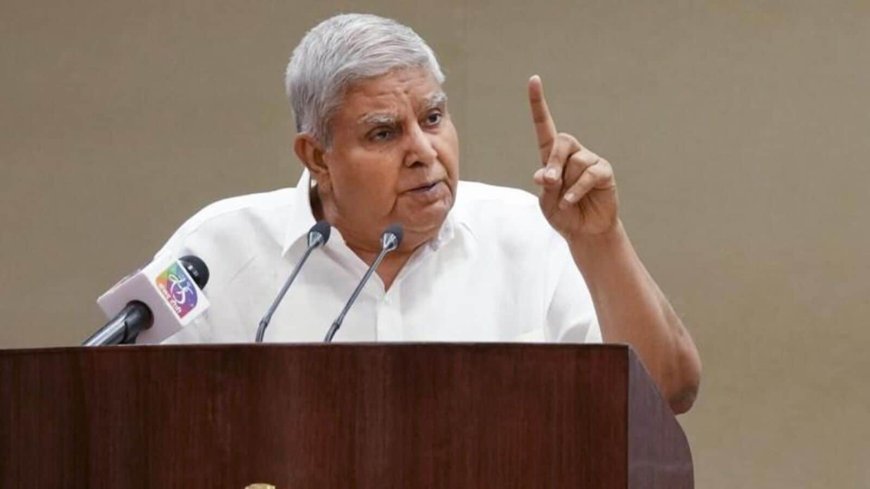VP Jagdeep Dhankhar targets SC again: Legislators are ‘ultimate masters’, ‘Parliament is supreme’—but is he right?
Dhankhar's upbraiding of the apex court comes days after the top court had prescribed a three-month timeline for the president to decide on bills reserved by governors for her nod. The SC has invoked Article 142 of the Constitution, which grants the court broad powers to ensure ‘complete justice’.

VP Jagdeep Dhankhar Targets SC Again: Legislators are ‘Ultimate Masters’, ‘Parliament is Supreme’—But Is He Right?
In a bold statement, Vice President Jagdeep Dhankhar has once again placed the spotlight on the relationship between legislative bodies and the judiciary in India. His remarks about the supremacy of Parliament and the legislators being the ‘ultimate masters’ have stirred significant discussion across political and legal circles. This article explores the implications of his statement and sheds light on the delicate balance of power within the Indian democratic framework.
The Context Behind Dhankhar's Statement
Jagdeep Dhankhar's assertion comes at a time when the judiciary's role in interpreting laws has faced scrutiny. Historically, Parliament has had the authority to legislate, but the judiciary has also played a pivotal role in upholding constitutional values. This ongoing tug-of-war between the two arms of governance raises questions about the nature of democracy and rule of law in the country.
Legislators as the 'Ultimate Masters'
The Vice President’s characterization of legislators as ‘ultimate masters’ suggests a call for greater respect for parliamentary authority. However, critics argue that this perspective may undermine the judiciary’s essential role in safeguarding individual rights and freedoms. The interpretation of laws and the ability to conduct judicial review serve as checks and balances necessary for a functioning democracy.
Parliament's Supremacy: What It Entails
By claiming that ‘Parliament is supreme’, Dhankhar aligns with the principle of parliamentary sovereignty. Yet, the potential repercussions of this declaration merit careful examination. Many fear that an unchallenged Parliament could lead to the passage of laws that may infringe upon fundamental rights, thus necessitating an independent judiciary to act as a guardian.
The Response from Legal Experts
Legal scholars have responded to Dhankhar's remarks by highlighting the importance of maintaining a harmonious relationship between the legislature and the judiciary. The systems of checks and balances are integral to upholding democracy, ensuring that no single branch of government exceeds its authority.
Conclusion: Navigating the Balance of Power
Jagdeep Dhankhar's remarks offer a significant perspective on the dynamics between the Indian Parliament and Supreme Court. By emphasizing the need for legislative supremacy, he sparks a debate that necessitates thoughtful consideration of its implications. As India navigates its democratic path, the essential question remains: how can it ensure that both Parliament and the judiciary operate within their bounds while safeguarding the rights of the citizens? Stay updated with the latest developments by visiting News by dharmyuddh.com. Keywords: Jagdeep Dhankhar statement on SC, Indian Parliament vs Judiciary, legislative supremacy in India, role of Supreme Court in democracy, checks and balances in Indian government, relationship between Parliament and judiciary, current political news India.







